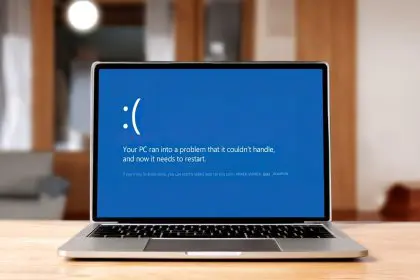Switching off the internet on your phone can reverse the brain’s age by 10 years. This remarkable finding challenges our assumptions about technology use and opens new possibilities for cognitive enhancement without medication or complex interventions.
A study in Canada saw 400 students and working-age adults download an app that blocked their smartphones’ access to the internet for two weeks, although they were still able to make calls and send texts.
The participants completed surveys before and after the study to measure their brain function and mental wellbeing and the findings showed that their sustained attention – the ability to focus on a single subject – was boosted so much that it became equivalent to the attention span of someone a decade younger. Neuroscientists have long been concerned about declining attention spans in the digital age, as our brains adapt to constant streams of information.
Experts believe that the changes to the brain were a result of individuals spending less time on the internet and more time socializing in person and being outside in nature. The natural environment provides a different kind of cognitive stimulation that allows the brain to recover from the constant demands of digital processing, according to several complementary studies in environmental psychology.
“Despite the many benefits mobile internet offers, reducing the constant connection to the digital world can have large positive effects,” the team from the University of British Columbia said. “Our results provide evidence that blocking mobile internet from smartphones for two weeks can produce significant improvements for (well-being), mental health and the objectively measured ability to sustain attention.” The research team used established cognitive assessment methods to verify these improvements across all participant groups.
The study also documented additional benefits beyond attention improvement. Participants reported sleeping longer per night during the two-week period, with meaningful improvements in sleep quality. Sleep researchers have established strong connections between screen time, particularly before bed, and disruptions to natural sleep patterns.
Anxiety levels among participants decreased significantly, with the most substantial reductions observed in those who reported high levels of social media use before the study. This finding aligns with a growing body of research examining the relationship between digital habits and mental health outcomes.
The lead researchers noted that participants initially experienced withdrawal-like symptoms including restlessness, anxiety, and phantom phone sensations. “By day four, most participants reported these symptoms subsided, and by the end of the first week, most reported feeling more present and engaged with their surroundings,” they explained in the full research paper.
Perhaps most surprisingly, the cognitive benefits persisted after the study concluded. In follow-up assessments conducted months later, many participants maintained significant attention improvements compared to their baseline, suggesting that even temporary breaks from digital connectivity may have lasting neural effects.
The research team was particularly interested in the neuroplasticity demonstrated in older participants. Those in higher age brackets showed notable improvements in attention metrics, challenging assumptions about cognitive flexibility decreasing with age. Brain analysis conducted on participants showed increased activity in regions responsible for executive function and decision-making.
Industry experts have taken notice of these findings. Several major tech companies have begun developing features for their devices that temporarily limit internet connectivity while maintaining essential communication functions. The study has also prompted discussions about “internet hygiene” becoming a standard component of workplace wellness programs.
Neurologists emphasize that these findings don’t suggest eliminating technology entirely but rather taking periodic breaks. “The brain appears to benefit from cycles of connectivity and disconnection,” explained experts in the field of cognitive neuroscience who reviewed the study results.
As concerns about technology dependence continue to grow, with many people checking their phones dozens of times daily, this research offers a relatively simple intervention with potentially profound benefits. The researchers are now expanding their study to examine effects across different populations and circumstances.
The findings suggest that our relationship with technology may need recalibration, with intentional disconnection periods becoming as important as connectivity in maintaining optimal brain health and cognitive function in the modern digital landscape.















